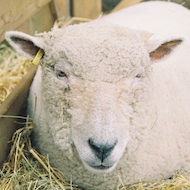
Withdrawl periods change in light of new knowledge
Veterinary surgeons are being urged to make sure they follow the latest best practice guidelines when using antimicrobials and wormers in cattle and sheep.
Elanco Animal Health says that it is not widely appreciated that withdrawal periods can change in light of new knowledge.
It is vital to regularly check withdrawal periods and make it part of best practice protocol by getting into the habit of double checking the current advice when administering drugs.
Recently, there have been extensions to the withdrawal periods for Dectomax 10mg/ml Solution for Injection and Micotil 300mg/ml Solution for Injection.
For Dectomax injectable, meat withdrawal for cattle and sheep will be extended to 70 days and pigs to 77 days.
For Micotil, sheep milk withdrawal will be extended to 18 days and milk from cows during the dry period or from pregnant heifers should not be used for human consumption until 36 days after calving.
Elanco has been reminding veterinary surgeons that they may continue to prescribe according to the current label but it is good practice to implement revised withdrawal periods.



 The latest
The latest